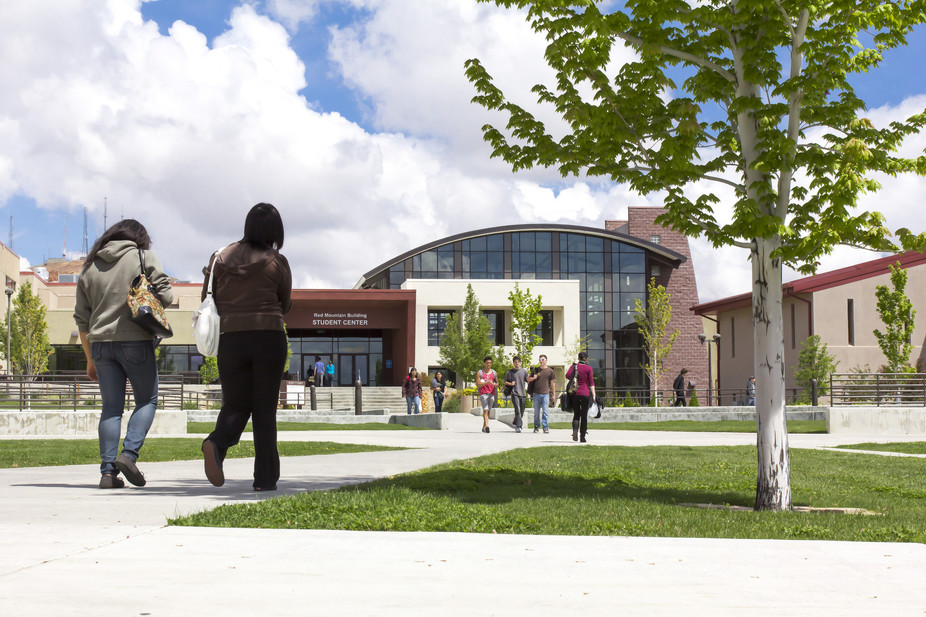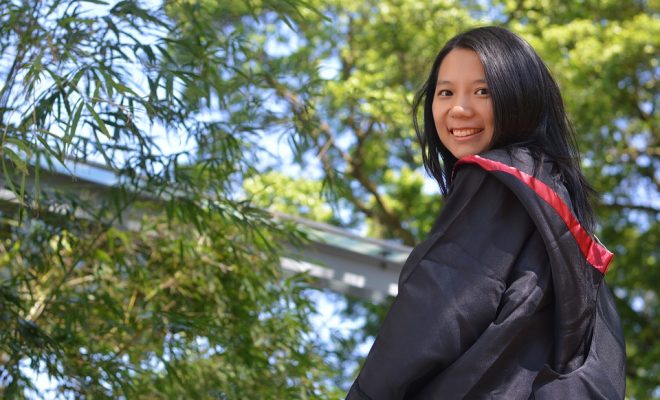2023 Best Bachelor’s in Gerontology Programs

Click here to find out more about the ranking methodology that we used to compile this list.
Congratulations! If you represent a college or university that is included in this list, please collect your seal below.
Deciding which college to attend can be a daunting task. For many, it will be the most important decision that they make in their lives. To make an informed decision, you have to consider a lot of variables, such as cost of attendance, financial aid, student/teacher ratio, academics, student life, and more. These factors will either positively or negatively impact the quality of education that you receive.
Do you want to acquire a bachelor’s degree in gerontology, but don’t know what institution you should attend? Well, if you are as ambitious as I was in my late teens, then you want to attend a top school, instead of an average or mediocre one. Fortunately, we have already done the legwork for you. To help you find the right school for your interests and goals, we’ve compiled a list of 2022’s best bachelor’s in gerontology programs.
What institution did we forget? Leave your thoughts in the comment section below.
San Diego State University claims the highest enrollment among institutions in the county with over 30,000 undergraduates in attendance. SDSU has a vibrant campus environment with athletics, Greek life, and more. San Diego State University has a robust and integrated BA in gerontology. Beyond classwork, field experience and a study abroad prerequisite set this degree program apart. Learners finish two internships and externships in a local organization, and they take engaging courses such as:
- Diversity and Aging
- Images of Aging in Contemporary Society
- Social Policy and Aging
- Aging Networks
At Ithaca College, learners have the choice of enrolling in a BS or BA degree program in gerontology. These multidisciplinary degrees draw from several departments to prepare learners for future graduate work in aging studies. Focused classes include:
- Biology of Aging
- Aging and Social Policy
- Critical Health Issues
- Sociology of Aging
Although it is growing, the University of Nebraska at Omaha (UNO) sustains an impressive 17:1 learner-to-faculty ratio. Military Times has rated UNO in the top 10 “Best for Vets” schools for the last six years in a row. This BS in gerontology pulls together coursework from three aspects of aging: physical, social, and psychological. Of the 120 credit hours required in this program, learners take 36 hours in gerontology classes, which consist of:
- Adult Development & Aging
- Death & Dying
- Programs and Services for the Elderly
- Working with Minority Elderly
The University of Nebraska at Omaha has two paths of concentration for undergraduates in gerontology: administration or pre-health.
Miami University at Oxford was founded in 1809 and has sustained its reputation for delivering quality liberal arts education over the decades. The university stresses research in its BA in gerontology. One of the three focus paths is applied research in gerontology. The other two are potential health professions or policies and programs.
One feature of this degree program is the internship requirement. Learners select an area of aging studies that interests them—be it long-term care or hospice—and spend a semester in that role. A pre-internship class helps learners prepare for a career in gerontology by working on networking skills, resume building, and professional ethics.
The Department of Gerontology at Sacramento State offers a program in aging studies. Learners take 48 classes wholly devoted to the major and receive a BA in gerontology. Between research classes, a practicum, and a wide-ranging list of electives, learners will be well-grounded in this discipline. A sampling of classwork includes:
- Elder Care Continuum Services and Strategies
- Managing Disorders in Elders
- Psychological Aspects of Death & Dying
- Family Finance
The University South Florida has three campuses: USF Tampa, USF St. Petersburg, and USF Sarasota-Manatee. At USF, learners can select either a BS in aging sciences or a BS in long-term care administration. Students will take classes such as:
- Program Evaluation in an Aging Society
- Physical Changes and Aging
- Legal Aspects in Health Care Administration
- Psychology of Aging
The BS in gerontology studies combines classes in sociology, anthropology, psychology, and human ecology, making this a genuinely multidisciplinary degree. Since the program resides in the Department of Sociology, this bachelor’s degree includes classes such as:
- Sociology of Health and Illness
- Comparing Aging: A Global Perspective
- Sociology of Death and Dying
- Adulthood in Families
Last year, SUNY Oneonta’s gerontology degree program was rated #3 for “Best Gerontology Colleges in New York” by University.com. One of the program’s distinctives is that learners receive one-on-one attention from faculty based on the small size of the department.
State pride is evident at the University of Northern Iowa, where over 90 percent of the student body is from Iowa. UNI offers the only gerontology degree in the state of Iowa. Learners can select either of two concentrations: social sciences or long-term care administration. Both concentrations lead to a BA in gerontology. Gerontology core classes include:
- Human Biological Variation
- Perspectives on Death & Dying
- Social Services for Older Adults
- Families and End of Life Issues
Missouri State University—Springfield is a state institution that was established in 1905. Among regional state institutions in the Midwest, Missouri State is rated 31st. Although its primary campus is in Springfield, MSU also has satellite campuses across the state and in Dalian, China. In 1999, the Association for Gerontology in Higher Education designated this BS degree program as a Program of Merit. As such, learners will be taking the top of the line classwork in an array of areas, including:
- Aging and Adjustment
- Identity and Aging in Literature and Film
- Psychophysiology of Aging
- Gender Issues in Later Life
Learners have the option of pursuing a double major. Since the gerontology degree program is housed within the Department of Psychology, learners can earn a double major in gerontology and psychology without taking any extra classes.
Winston-Salem State University was recently rated #7 in the nation for its Social Mobility Index, and it has been designated as a Program of Merit for its gerontology coursework. With 61 credit hours in the major, this BA in gerontology lists half of the coursework as focused study.
This degree program organizes coursework into three categories: major prerequisites, skills prerequisites, and fieldwork. Rather than limiting learners to just classroom study, this BS in gerontological studies and services blends theory and real-life application.
At Bowling Green State University, learners work on either general gerontology or a long-term care administration path within gerontology. Aside from the classwork, the program includes is a lengthy practicum and internship prerequisite that gets learners involved in real-life experience. The long-term care practicum entails 1,000 hours of experience. Other classes consist of:
- Aging, the Individual, and Society
- Health and Aging
- Applied Social Gerontology
- Psychology of Adult Development and Aging
Youngstown State University is a mid-sized research institution that has a mean class size of 21 learners. Most of the student population is from Ohio, and it has some of the lowest tuition rates among other colleges and universities in the state. The 120-credit hour bachelor of arts in gerontology gives learners the chance to take courses in several disciplines. Classes include:
- Exercise and Aging for Health Professions
- Economics of Aging
- Social Services and the Aged
- Later Life Issues
The degree is very much community-based, and learners enjoy gerontology internships and externships with over 30 local organizations.
The Department of Social Work & Gerontology offers a social work degree with a gerontology minor. In a total of 17 credit hours, learners will enroll in seven classes that will improve their comprehension of working with aging populations.
The BA in gerontology at Minnesota State University Moorhead contains 42 credit hours in the gerontology discipline. This coursework incorporates everything from social work to the life sciences. Learners choose from a wide selection of electives along with a solid list of core classes such as:
- Elder Law
- Social Gerontology
- Gerontology: Policy and Practice
- Adulthood and Aging
Although this degree program does not feature a practicum or internship, the end of the program features a class called gerontology—policy and practice in which learners will spend half of their time in a writing-intensive seminar, and the other half is spent working in an elderly care facility.







